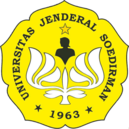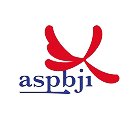Lexical Cohesion through Repetition in Three Selected Poems from the Anthology ”Aku Ingin Jadi Peluru” by Widji Thukul
Abstract
This study examines lexical cohesion through repetition in three selected poems from the anthology Aku Ingin Jadi Peluru by Widji Thukul. The aim is to identify the types, functions, and meanings of repetition as linguistic and rhetorical tools for conveying ideological messages and emotional expressions. Using a descriptive qualitative approach, data were collected through observation and note-taking techniques and analyzed using the distributional method with the Immediate Constituent (IC) technique. The findings reveal three primary types of repetition: anaphora (28.57%), which emphasizes themes and personal reflection; mesodiplosis (14.29%), which highlights irony and alienation; and full repetition (57.14%), which reflects the poet's struggles and existential anxieties. These results demonstrate that repetition in Widji Thukul's poetry serves not only aesthetic purposes but also functions as a strategic tool for social critique and identity exploration. This study contributes to the field of lexical cohesion in Indonesian poetry and provides a foundation for further research on cohesion in other literary works.
References
Ardiyanti, R., & Setyorini, W. (2019). Kohesi gramatikal dan kohesi leksikal dalam cerita anak berjudul" Buku Mini Dea" karya Watiek Ideo dan Yuli Rahmawati. Selong: SeBaSa, Jurnal Pendidikan Bahasa dan Sastra Indonesia.
Musayyidah, N. (2022). Kohesi Leksikal Repetisi dalam Novel Garis Waktu Karya Fiersa Besari. Madura: IAIN Madura.
Sukmadinata, N. S. (2017). Metode Penelitian Pendidikan. Bandung: Remaja Rosdakarya.
Sudaryanto. (2017). Metode dan Aneka Teknik Analisis Bahasa: Pengantar Penelitian Wahana Kebudayaan Secara Linguistik. Yogyakarta: Sanata Dharma University Press.
Sumarlam. (2024). Teori dan Praktik Analisis Wacana. Surakarta: Bukukatta
Thukul, W. (2000). Aku Ingin Jadi Peluru. Magelang: Indonesia Tera.
Authors who publish with Journal of Language Education Studies and Applied Linguistics (JoLESAL) agree to the following terms:
- Authors retain copyright and grant the journal right of first publication with the work simultaneously licensed under a Creative Commons Attribution License (CC BY-SA 4.0) that allows others to share the work with an acknowledgment of the work's authorship and initial publication in this journal.
- Authors are able to enter into separate, additional contractual arrangements for the non-exclusive distribution of the journal's published version of the work (e.g., post it to an institutional repository or publish it in a book), with an acknowledgment of its initial publication in this journal.
- Authors are permitted and encouraged to post their work online (e.g., in institutional repositories or on their website) prior to and during the submission process, as it can lead to productive exchanges, as well as earlier and greater citation of published work.









